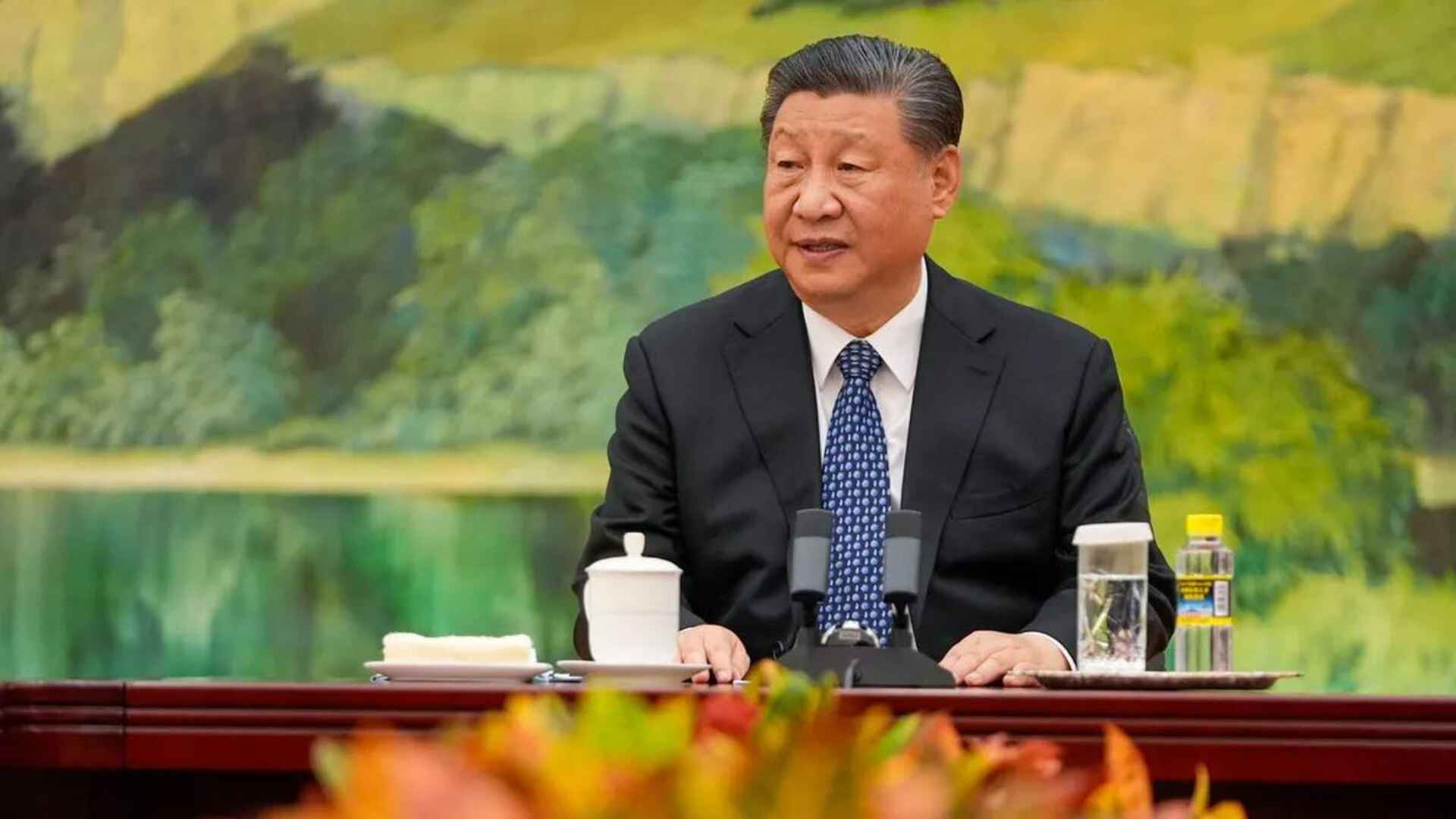Chinese President Xi Jinping has commenced his six-day journey to Europe amidst growing trade tensions with the European Union (EU) and apprehensions regarding Beijing’s backing of Russia, as stated by Voice of America (VOA).
Xi’s tour, commencing on Sunday (April 28), marks his inaugural visit to the continent since 2019, encompassing visits to France, Serbia, and Hungary.
According to analysts from Taiwan, discussions during the trip may likely address Russia’s conflict in Ukraine and the Israel-Hamas tensions.
Additionally, VOA reported that during the trip, the Chinese president aims to tackle trade tensions as a priority and reinforce Beijing’s strong ties with Budapest and Belgrade.
Zsuzsa Anna Ferenczy, an expert on EU-China relations at National Dong Hwa University in Taiwan, stated, “In light of Europe’s growing appetite to investigate what they view as China’s unfair trade practices, (Xi’s European tour) is a trip to disrupt the EU’s efforts to adopt tougher trade measures against China.”
Ferenczy highlighted Xi’s stops in Serbia and Hungary, noting that Xi aims to demonstrate China’s continued influence in Central and Eastern Europe. This comes despite an increasing number of countries withdrawing from the Beijing-led initiative known as “Cooperation between China and Central and Eastern Europe.”
“For Beijing, the symbolism of the trip to Serbia and Hungary is important, as the stop in Budapest serves as an opportunity to amplify divisions within the EU,” she said.
According to VOA, in recent weeks, the EU has initiated investigations into various Chinese products, including green energy products and security devices. Additionally, the EU has launched a probe into China’s public procurement of medical devices.
In the past week, the EU has intensified its scrutiny of several Chinese companies, implementing stricter safety regulations against Chinese fashion retailer Shein. Additionally, formal proceedings have been initiated against TikTok under the Digital Services Act.
Beijing has consistently dismissed Western countries’ concerns regarding Chinese excess capacity in certain sectors as “baseless hype” and has urged the EU to “stop wantonly going after and restraining Chinese companies under various pretexts.”
During recent bilateral meetings between Chinese and French officials, France has emphasized the necessity for European countries to rebalance trade relations with China in order to address trade imbalances.
French Foreign Minister Stephane Sejourne, on his visit to China last month, said, “The European Union is a very open market, the most open in the world. But the current deficits with a certain number of countries, including China, are not sustainable for us.”
During a recent phone conversation with Emmanuel Bonne, Diplomatic Counsellor to the French President, Chinese Foreign Minister Wang Yi expressed Beijing’s desire for “the French side will push the EU to continue to pursue a positive and pragmatic policy towards China.”
While France backs the EU’s endeavors to rebalance trade relations with China, some experts suggest that French President Emmanuel Macron will strive to uphold a collaborative relationship with China.
“France wants to demonstrate that it is one of the major countries that can maintain channels of communication at all levels with China,” Sari Arho Havren, an associate fellow at the Royal United Services Institute in Brussels, said in a statement.
Chinese and French armed forces agreed to establish a mechanism for maritime and aerial cooperation and dialogue on April 25, a move Beijing deemed a “vital step” in implementing the consensus reached by Xi and Macron, as reported by VOA.
While trade matters are expected to dominate the Chinese president’s meeting with Macron, some analysts suggest that Macron will also seek to address China’s ongoing support for Russia.
“Macron will try to convince Xi to agree [to reduce] China’s support to Russia, but in Europe, hopes that Sino-Russian collaboration will diminish are fading away,” Philippe Le Corre, a Senior Fellow at the Asia Society Policy Institute’s Center for China Analysis, said.
During Xi’s visit to Hungary and Serbia, Ferency noted that the Chinese president will prioritize enhancing bilateral cooperation across various sectors, particularly focusing on infrastructure projects and emphasizing Beijing’s role as “a strategic investor” in both nations.
“We need to see his trip to Hungary and Serbia in the context of the Belt and Road initiative since Beijing is trying to revitalise the infrastructure project in Europe,” Ferency said.
VOA reported that according to Ferency, the Belgrade-Budapest Railway will play a significant role in China’s efforts to expand its flagship infrastructure project in Central and Eastern Europe.
In recent months, the Hungarian government led by PM Viktor Orban has endeavored to attract substantial Chinese investment, particularly in the electric vehicle sector, while also strengthening security cooperation with Beijing.
Last week, in an interview, Hungarian Foreign Minister Peter Szijjarto voiced his opposition to the EU’s anti-subsidy investigation against Chinese electric vehicles (EVs) and said he “looks forward to the potential impact of the Belt and Road Initiative on Hungary’s electric vehicle and battery manufacturing industry.”
Havren reiterated that due to Hungary’s EU membership, the relationship with Budapest holds particular significance for China.
“Hungary could impact possible sanctions or anything that is of importance to Beijing in the EU,” she said.
Although the trip is unlikely to alter the current dynamics between the EU and China, Xi will seek to leverage China’s relationship with middle powers such as France and its “iron-clad friendship” with countries like Hungary to to make itself “more visible and relevant” in Europe, Havren added.























